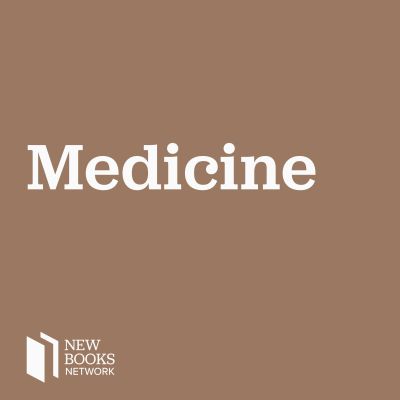Interviews with Scholars of Medicine about their New Book Support our show by becoming a premium member! https://newbooksnetwork.supportingcast.fm/medicine
https://newbooksnetwork.com/category/science-technology/medicine/
Gesamtlänge aller Episoden: 36 days 8 hours 17 minutes
Carlo C. DiClemente, “Substance Abuse Treatment and the Stages of Change: Selecting and Planning Interventions” (Guilford Press, 2013)
In this episode, I talk with Carlo C. DiClemente, a Presidential Research Professor in the Department of Psychology at the University of Maryland- Baltimore County, about his co-authored book, Substance Abuse Treatment and the Stages of Change: Selecti...
Karen G. Weiss, “Party School: Crime, Campus, and Community” (Northeastern UP, 2013)
In this episode, I sit down with Karen G. Weiss, associate professor in the Department of Sociology and Anthropology at West Virginia University, to talk about her book, Party School: Crime, Campus, and Community (Northeastern University Press, 2013).
Angela N. H. Creager, “Life Atomic: A History of Radioisotopes in Science and Medicine” (University of Chicago Press, 2013)
Angela Creager‘s deeply researched and elegantly written new book is a must-read account of the history of science in twentieth-century America. Life Atomic: A History of Radioisotopes in Science and Medicine (University of Chicago Press,
Eugene Raikhel and William Garriott, eds., “Addiction Trajectories” (Duke UP, 2013)
Addiction has recently emerged as an object of anthropological inquiry. In a wonderful, focused volume of ethnographies of addiction in a wide range of contexts, Eugene Raikhel and William Garriott have curated a collection of essays that each follow a...
Sienna R. Craig, “Healing Elements: Efficacy and the Social Ecologies of Tibetan Medicine” (University of California Press, 2012)
Two main questions frame Sienna R. Craig‘s beautifully written and carefully argued new book about Tibetan medical practices and cultures: How is efficacy determined, and what is at stake in those determinations?
Marga Vicedo, “The Nature and Nurture of Love” (University of Chicago Press, 2013)
Between WWII and the 1970s, prominent researchers from various fields established and defended a view that emotions are integral to the self, and that a mother’s love determines an individual’s emotional development. In Marga Vicedo,
A. David Redish, “The Mind Within the Brain” (Oxford UP, 2013)
Free will is essential to our understanding of human nature. We are masters of our own fate. We chart our own course. We take our own road. In short, we decide what we are going to do. There seems little doubt that free will is a reality. But how,
Dorothy H. Crawford, “Virus Hunt: The Search for the Origin of HIV” (Oxford UP, 2013)
If you think about it, pretty much everything has a history insofar as everything exists in time. Historians, however, usually limit themselves to the history of humans and the things humans make. Occasionally, of course,
John P. DiMoia, “Reconstructing Bodies: Biomedicine, Health, and Nation-Building in South Korea Since 1945” (Stanford UP, 2013)
For a patient choosing among available forms of healing in the medical marketplace of mid-20th century South Korea, the process was akin to shopping. In Reconstructing Bodies: Biomedicine, Health, and Nation-Building in South Korea Since 1945 (Stanford...
Mark A. Largent, “Vaccine: The Debate in Modern America” (Johns Hopkins UP, 2012)
Children born in the 1970s and 1980s received just a handful of vaccinations: measles, rubella, and a few others. Beginning the 1990s, the numbers of mandated vaccines exploded, so that today a fully-vaccinated child might receive almost three dozen va...
